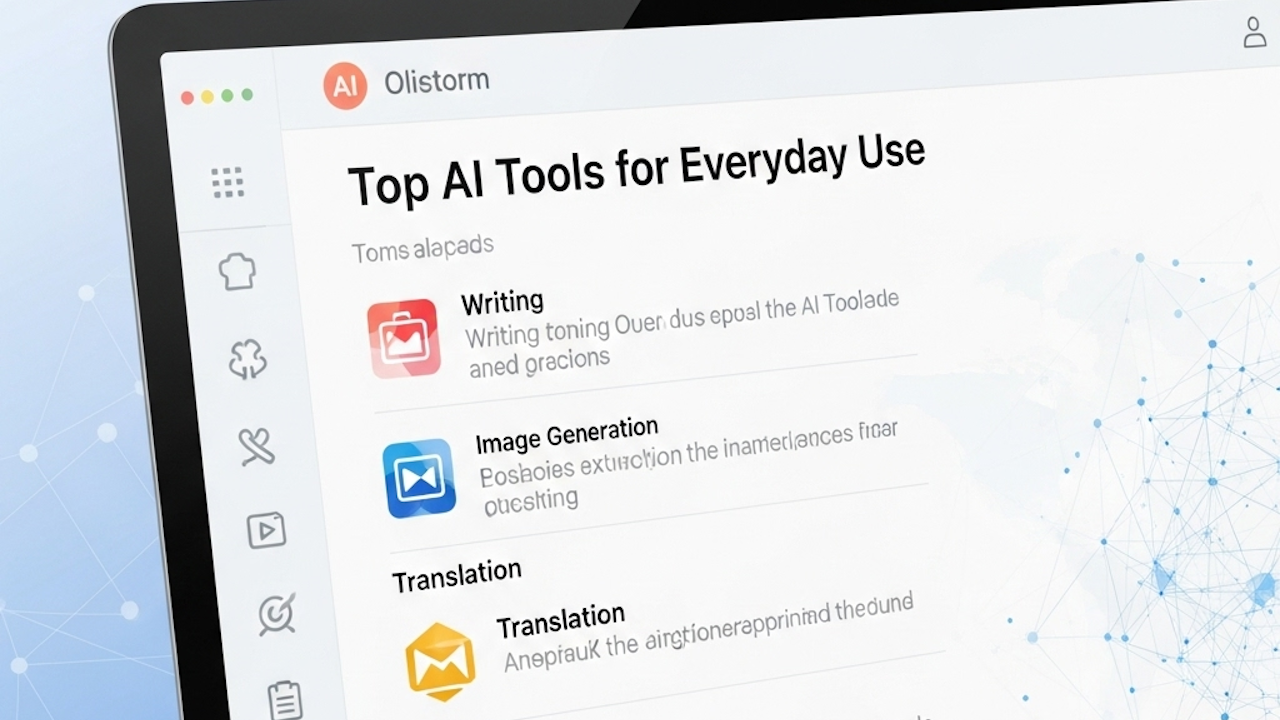Artificial intelligence has rapidly become a part of everyday life, offering tools that streamline tasks, enhance productivity, and provide assistance in various domains. From writing and image generation to automation and personal organization, AI-powered solutions are transforming how people work and interact with technology. Below are some of the most useful AI tools that can be incorporated into daily routines.
AI-Powered Writing Assistants
AI-driven writing assistants have revolutionized the way people draft emails, articles, and reports. Tools like Grammarly and QuillBot help users refine grammar, enhance sentence structure, and rephrase content for better readability. ChatGPT and Jasper AI go further by generating content based on prompts, making them ideal for brainstorming ideas, crafting stories, and even writing technical documents. These tools significantly cut down the time required for drafting and editing, making writing more efficient.
AI Image and Video Generation
Creative professionals and casual users alike benefit from AI-based image and video tools. MidJourney and DALL·E allow users to generate high-quality images from text prompts, making them invaluable for designers, marketers, and content creators. For video editing, Runway ML and Synthesia provide automated editing, background removal, and even AI-generated avatars for video content. These tools simplify complex processes and make high-quality visual content accessible to everyone.
AI Voice Assistants and Transcription Services
Virtual assistants like Siri, Google Assistant, and Amazon Alexa help users manage daily tasks, set reminders, and control smart home devices. Beyond these, AI transcription services such as Otter.ai and Rev convert speech into text, assisting professionals in transcribing meetings, lectures, and interviews with high accuracy. This eliminates the need for manual note-taking, saving time and effort.
AI-Powered Personal Organization Tools
Keeping track of tasks, schedules, and projects has never been easier with AI-powered productivity tools. Notion AI, ClickUp, and Trello leverage AI to suggest deadlines, automate task assignments, and summarize notes. Tools like Motion AI and Reclaim AI use machine learning to analyze calendars and optimize schedules, ensuring users make the most of their time. These solutions are particularly useful for professionals balancing multiple commitments.
AI Chatbots for Customer Support and Assistance
Businesses and individuals benefit from AI chatbots that provide instant responses and support. Chatbots like Drift, Tidio, and Intercom automate customer service by handling queries, offering recommendations, and resolving issues without human intervention. These tools improve response times and enhance customer experience by offering personalized interactions.
AI for Learning and Education
Students and educators are leveraging AI tools to enhance learning experiences. Duolingo uses AI to provide personalized language learning paths, adapting to a learner’s pace and skill level. Khan Academy’s AI tutor offers explanations and feedback on various subjects. Platforms like Coursera and Udemy use AI to recommend courses based on user preferences and career goals. These tools make education more engaging and accessible for users of all backgrounds.
AI-Based Health and Wellness Applications
Healthcare and wellness apps use AI to track health metrics, provide virtual consultations, and offer mental wellness support. Fitbit and Apple Health employ AI to analyze physical activity and suggest improvements. AI-driven chatbots like Woebot offer mental health support through guided conversations. Additionally, platforms like Ada and K Health allow users to input symptoms and receive potential diagnoses, helping them make informed healthcare decisions.
AI-Powered Search and Recommendation Engines
Search engines and recommendation systems use AI to provide relevant information efficiently. Google Search integrates AI to refine search results based on user intent, while platforms like YouTube, Netflix, and Spotify use AI-driven algorithms to recommend content tailored to user preferences. These recommendation engines enhance user experience by providing personalized content, reducing the time spent searching for information.
AI for Financial Management
Personal finance tools are leveraging AI to help users manage budgets and investments. Apps like Mint and YNAB analyze spending habits, suggest budgeting strategies, and track financial goals. Robo-advisors such as Wealthfront and Betterment provide AI-driven investment advice, optimizing portfolios based on market trends. These tools help users make informed financial decisions with minimal effort.
AI for Smart Homes and Automation
AI-powered smart home devices bring convenience to everyday life. Smart thermostats like Nest and Ecobee learn user preferences and adjust temperatures automatically to save energy. AI security cameras from brands like Ring and Arlo use facial recognition and motion detection to enhance home security. Voice-controlled devices like Google Nest Hub integrate multiple smart home functions, allowing users to control appliances, lighting, and entertainment with voice commands.
AI-Powered Travel and Navigation
Navigation apps and travel planners have improved significantly with AI integration. Google Maps and Waze use AI to provide real-time traffic updates, alternative routes, and estimated arrival times. AI-driven travel assistants like Hopper and Skyscanner predict flight and hotel price changes, helping travelers book at the best rates. These tools simplify trip planning and improve travel efficiency.
AI for Shopping and E-Commerce
AI enhances online shopping experiences by providing personalized recommendations and chatbot assistance. Amazon, eBay, and Shopify use AI to suggest products based on browsing history and previous purchases. Virtual try-on tools from brands like L’Oreal and Warby Parker allow customers to see how products look before purchasing. AI-powered price comparison tools, such as Honey, help shoppers find the best deals, making online shopping more efficient and cost-effective.
The Growing Influence of AI in Everyday Life
Artificial intelligence continues to integrate into daily life, offering tools that enhance productivity, creativity, and convenience. Whether assisting with writing, organizing schedules, or improving customer service, AI tools are becoming indispensable for individuals and businesses alike. As these technologies evolve, they will further refine the way people interact with digital solutions, making everyday tasks more seamless and efficient.

